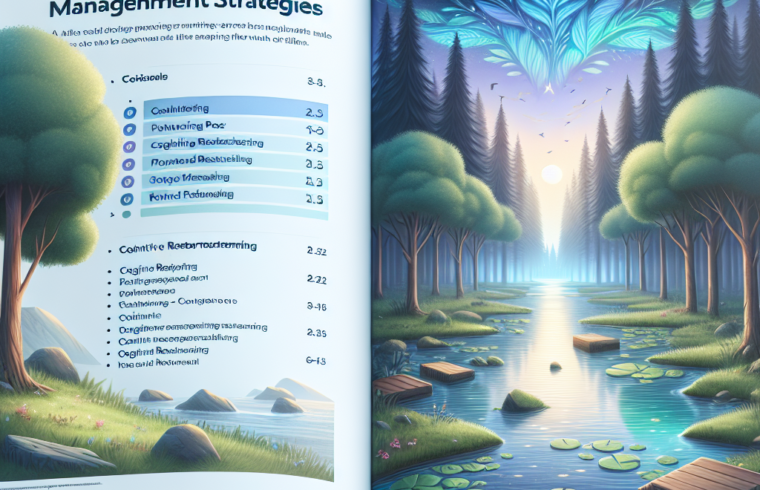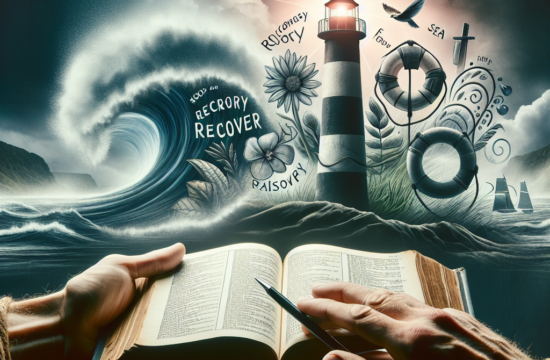Understanding PTSD and Its Impacts
Defining PTSD
So, let’s tackle the elephant in the room first. What exactly is PTSD? Post-Traumatic Stress Disorder is a mental health condition that’s triggered by a terrifying event, either experiencing it or witnessing it. I’ve seen how it manifests differently for everyone – some folks may have flashbacks or nightmares, while others feel anxious or detached.
==> Thank you for reading this post! Click Here If you are looking for support and Victory over PTSD.
Understanding PTSD starts with acknowledging that it isn’t just a “bad memory.” It’s an ongoing struggle. When I first encountered someone suffering from PTSD, it opened my eyes to how hard it really is for them. The emotional scars can linger much longer than anyone might anticipate.
What’s crucial here is creating a safe space for discussions about PTSD. The more we talk about it, the more we break down misunderstandings and stigma, allowing individuals affected by it to feel accepted and supported.
Causes and Triggers
Here’s the wild thing about PTSD: the causes can be super varied. It can stem from military combat, serious accidents, natural disasters, or even personal assaults. I often think we underestimate how seemingly small events can set someone off. A loud noise or certain smells can bring back vivid memories of traumatic instances.
Identifying triggers, as tough as it can be, is so important for managing PTSD. This can include everything from the anniversary of the trauma to everyday life stressors. In my experience, when individuals acknowledge their triggers, they take a powerful step towards managing their responses and finding coping mechanisms that work for them.
It’s so helpful when you can sit down and talk things through. Maybe even write a list of what makes you feel anxious or upset. That act alone can bring a sense of control – and trust me, people need that feeling when they are managing PTSD.
Emotional and Physical Symptoms
PTSD can mess with both the brain and the body. From rapid heart rates to a feeling of hopelessness, the symptoms are both mental and physical. When I see someone struggling to sleep because they can’t escape the shadows of the past, it breaks my heart. They often feel like they’re trapped, and it’s essential to validate those feelings.
Common physical symptoms can include headaches, fatigue, or heightened irritability. I’ve learned that the body has a way of responding to trauma, even if the mind tries to push it away. It’s all connected, and once we recognize this, we start to look for holistic management strategies.
Encouraging mindfulness and relaxation techniques can be beneficial here. Teaching someone to focus on their breath, or to be present in the moment, could transform their daily experience. It’s a gentle reminder that they’re okay, even when things get tough.
Coping Strategies for PTSD Management
Therapeutic Approaches
One of my absolute favorite categories of coping strategies has to be therapeutic approaches. They can vary from cognitive-behavioral therapy to exposure therapy. I can’t stress enough how impactful therapy was not just for me, but for so many people I know dealing with PTSD.
CBT focuses on changing the negative thought patterns. When I applied these strategies, I learned to challenge my assumptions and combat those destructive thoughts that kept circling in my mind. It’s like flipping a switch in my head.
Don’t get me started on exposure therapy. It sounds intense but is super effective. Gradually facing fears in a controlled setting can vastly reduce anxiety. When I’ve seen others go through this, it’s magical to witness their gradual progression to reclaiming their lives.
Support Systems
Support systems are a game-changer. I always tell folks, you don’t have to navigate this journey alone. Family, friends, or peer support groups can provide a backbone of comfort and understanding. I remember leaning on my close friends when I was struggling; their patience and empathy played a pivotal role in my healing.
Sometimes sharing your story can build a community around you. I know it’s tough, but sharing our experiences often creates bonds that are priceless. Plus, you might find someone who relates to your struggle, and that connection can be so uplifting.
Remember that even professional support matters. Therapists and counselors can help fill the gaps where friends and family may not fully understand. It’s totally okay to reach out for that kind of help, and it can pave the way for deeper healing.
Self-Care and Mindfulness Practices
Now, let’s talk about self-care. It might seem cliché, but it’s a must. From practicing yoga to journaling, finding ways to take care of ourselves can be lifesaving. Personally, I’ve gotten lost in a good book or a movie to escape the noise occasionally. It’s amazing how immersing myself in something else can help calm my mind.
Get Support and Help with Recovery! Visit us for more Information and Support
Mindfulness practices, like meditation and deep-breathing exercises, also play a crucial role. For me, this was a game changer. Taking just a few minutes a day to focus on my breath gave me clarity and peace during chaotic times. I can’t stress enough how beneficial these practices can be.
Additionally, create an environment that feels safe for you. Whether that means decluttering your space or slowing down your pace of life, these small adjustments can make a massive difference in your day-to-day mental state.
Seeking Professional Help
The Importance of Therapy
Let’s be real, therapy is important when it comes to managing PTSD. Sometimes, our friends and family don’t quite get it, and that’s okay. That’s where a professional comes in. I remember my first session – I was a mix of nervous and hopeful. It’s empowering when you find someone who understands your journey and validates your feelings.
Not all therapy is created equal, though. It might take time to find the right therapist for you. I’ve gone through a couple before I found someone I clicked with. Patience in this process is key, folks.
The therapeutic relationship itself can be healing. Having someone to talk to, who listens without judgment, is incredibly soothing and can lead to breakthroughs you may never have anticipated.
Medication and Treatment Options
Some folks may benefit from medication. I’ve seen how it helps many individuals manage their symptoms better. That said, it’s essential to have a detailed conversation with a healthcare provider about the benefits and downsides. Finding the right medication is like seeking the perfect puzzle piece – it may take a bit to fit everything together.
There are various medications available, ranging from SSRIs to anti-anxiety meds. I often recommend discussing options with a knowledgeable psychiatrist who can guide you through the fog of choices.
Blending therapy with medication can have profound effects. I’ve personally learned that it’s not about finding a miracle cure but rather piecing together different strategies that work for each unique individual.
Continuous Monitoring and Adjustment
Managing PTSD isn’t a one-and-done deal. It’s a journey that requires continuous monitoring and adjustment. I always urge folks to be gentle with themselves and recognize that progress can feel like two steps forward and one step back.
Regular check-ins with your therapist or support group can help you gauge how well your strategies are working. If something isn’t fitting right, that’s a signal to tweak your approach. Staying open to change can be a lifeline on this journey.
Ultimately, it’s about building a toolkit of strategies that resonate with you. It may evolve over time, and that’s completely fine. Remember to celebrate the small victories along the way because they often lead to the biggest transformations.
Frequently Asked Questions
1. What is PTSD?
PTSD, or Post-Traumatic Stress Disorder, is a mental health condition triggered by experiencing or witnessing a traumatic event. It can result in various symptoms, including flashbacks, nightmares, anxiety, and emotional distress.
2. What are common coping strategies for managing PTSD?
Common coping strategies include therapeutic approaches like CBT, establishing strong support systems, and practicing self-care and mindfulness techniques. Each person’s journey is unique, and it’s essential to find what works best for you.
3. Is therapy necessary for managing PTSD?
While not everyone needs therapy, many find it beneficial. A therapist can provide tools and techniques tailored to your individual needs, helping navigate the complexities of PTSD more effectively.
4. How can I help a friend with PTSD?
Being a supportive friend involves listening without judgment, validating their feelings, and encouraging seeking professional help when necessary. Educating yourself about PTSD can also help you understand their experience better.
5. Can medication help with PTSD symptoms?
Yes, medication can be helpful for some individuals in managing PTSD symptoms. However, it’s important to consult a healthcare provider to determine the best treatment plan tailored to your needs.












